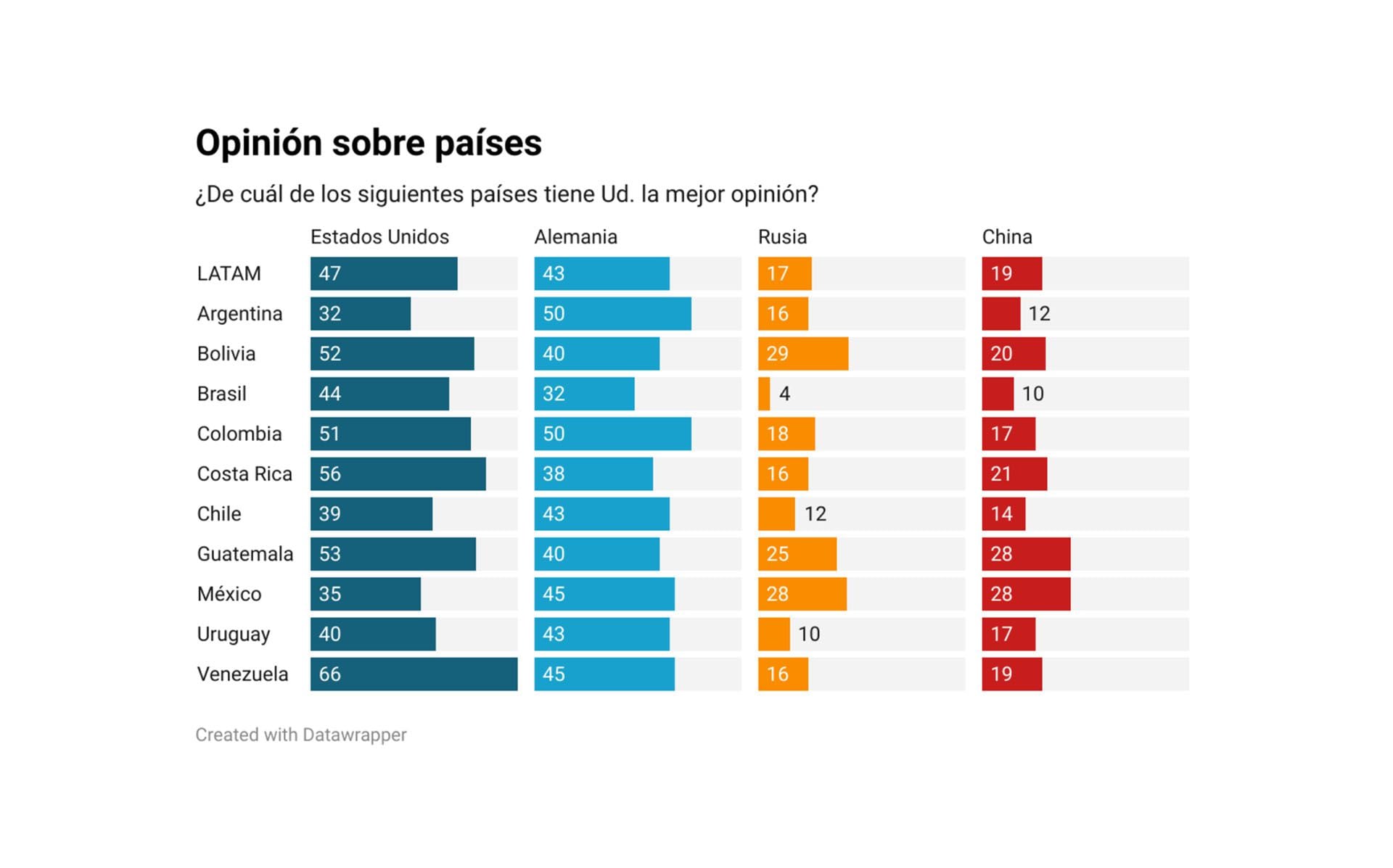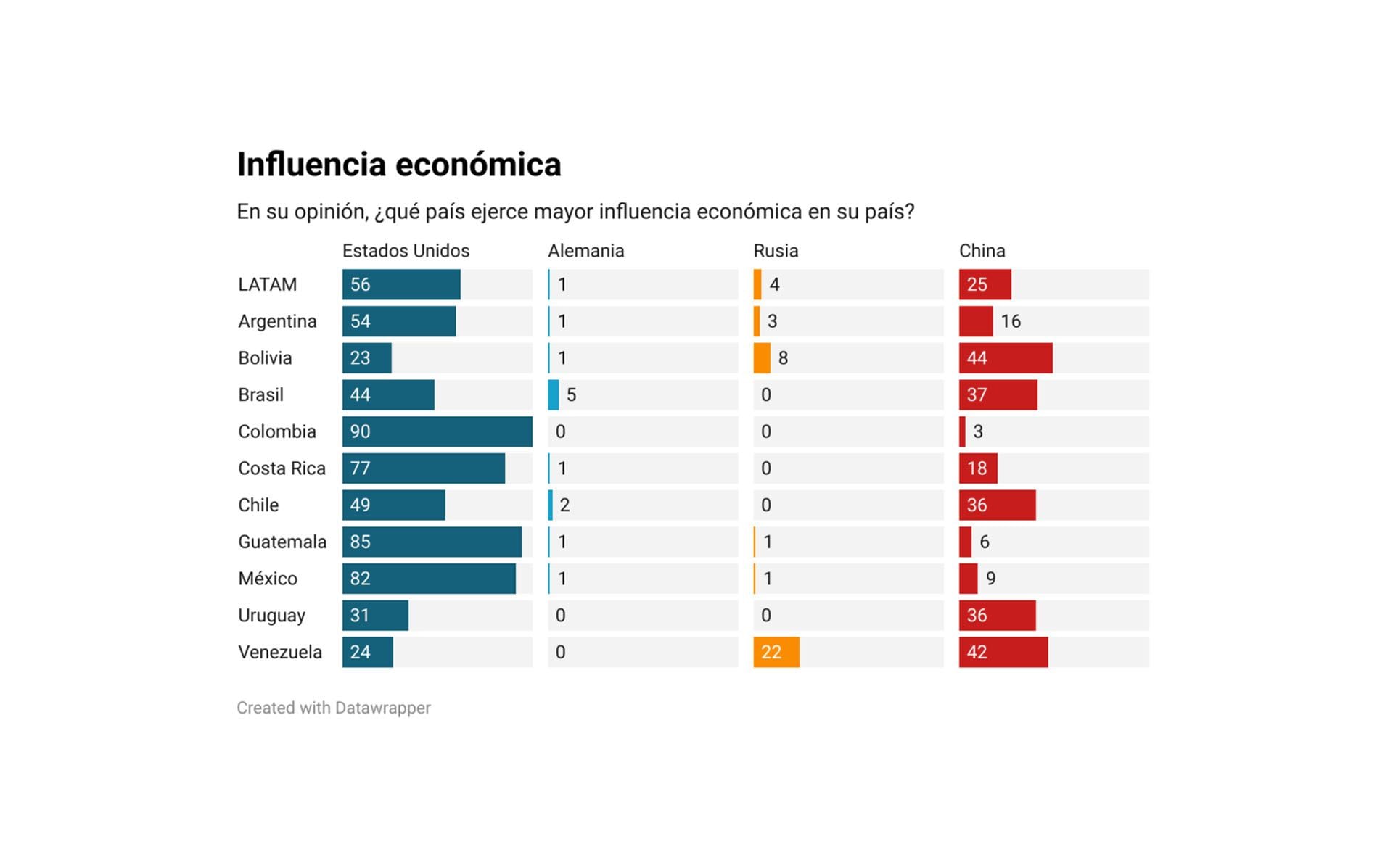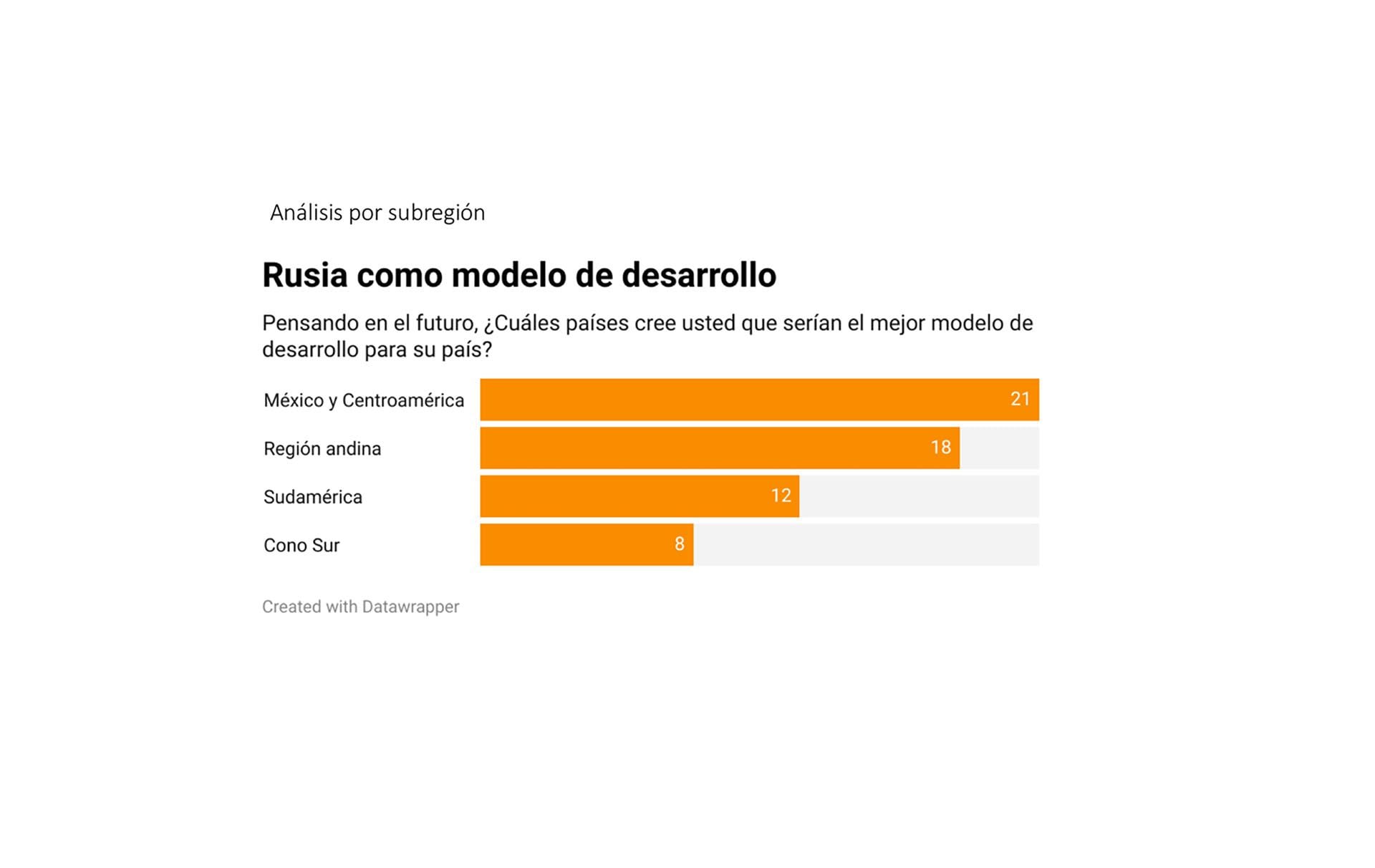
The survey “What is Latin America thinking about the European Union?” revealed that Russia and China lead the negative image ranking among the inhabitants of the region: only 17% see Russia positively and 19% see China positively.
At the other extreme, the United States and the European Union, especially Germany, hold prominent positions and garner the best opinions among the interviewees: the US has 47% positive image and Germany, 43%.

Mexico and Bolivia are the countries that rank Russia and China best, but in none do they reach 30 percent. And the respondents from Brazil and Uruguay, are the ones who expressed the greatest rejection.
In Argentina, the positive image of Germany rises to 50% and that of the United States to 32%. While only 12% see China positively and 16% see Russia positively.

In Latin America, democracy is identified with key nations in the North Atlantic. On a scale of 1 to 10, where 1 is “not a democracy” and 10 is “a full democracy”, the US and France scored 7.7, Germany 7.5, Russia 5.1 and China only 4 points.

A similar scenario is presented by development models, where the preferred ones are from the West: 44% chose the US, 41% chose Germany, 31% Japan, 29% China and 15% Russia. And if you take only the European context, the most chosen one, with 41%, is Germany.

The survey shows that China and the United States are seen as the most economically influential countries, but that it is with the countries in Europe that respondents would prefer to link up with. In fact, culture, care for the environment and the defense of human rights are among the issues that Latin Americans associate with the European Union.

The study also reveals that there is a regional consensus on the two priority global concerns: extreme poverty (73%) and climate change (71%). Then there are violations of human rights (65%), pandemics (60%), migration and refugees (45%), the crisis of democracies (44%) and the debt of countries (33%).

The work was carried out by the Latinobarómetro pollster, at the request of the Friedrich Ebert Stiftung Foundation and the magazine New Society/Dialogue and Peace Group, and addresses aspects such as democracy, development model and economic influence.
The study was based on a representative sample of the population of ten Latin American countries (with an average of 87% representation). 1,200 interviews were conducted per country, and quotas were considered by sex, age, schooling, social stratum and region. Data was collected through an online survey of adults with secondary or higher education, in Spanish and Portuguese.
KEEP READING:
Últimas Noticias
Debanhi Escobar: they secured the motel where she was found lifeless in a cistern
Members of the Specialized Prosecutor's Office in Nuevo León secured the Nueva Castilla Motel as part of the investigations into the case

The oldest person in the world died at the age of 119
Kane Tanaka lived in Japan. She was born six months earlier than George Orwell, the same year that the Wright brothers first flew, and Marie Curie became the first woman to win a Nobel Prize

Macabre find in CDMX: they left a body bagged and tied in a taxi
The body was left in the back seats of the car. It was covered with black bags and tied with industrial tape
The eagles of America will face Manchester City in a duel of legends. Here are the details
The top Mexican football champion will play a match with Pep Guardiola's squad in the Lone Star Cup

Why is it good to bring dogs out to know the world when they are puppies
A so-called protection against the spread of diseases threatens the integral development of dogs




